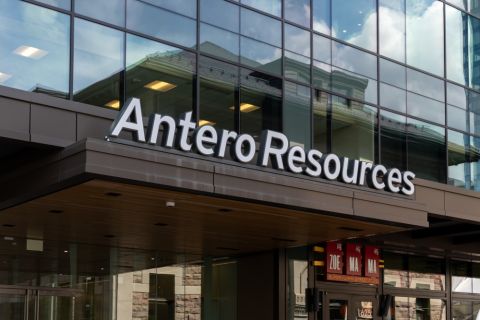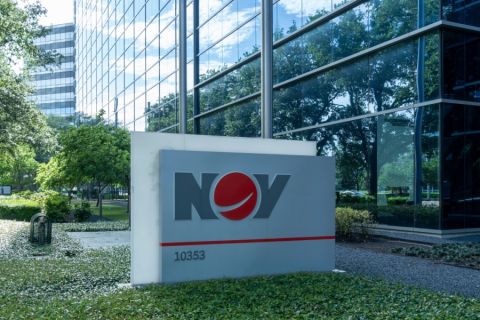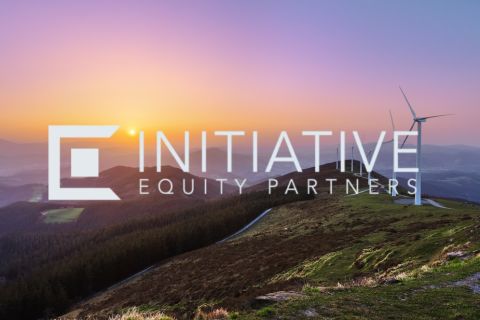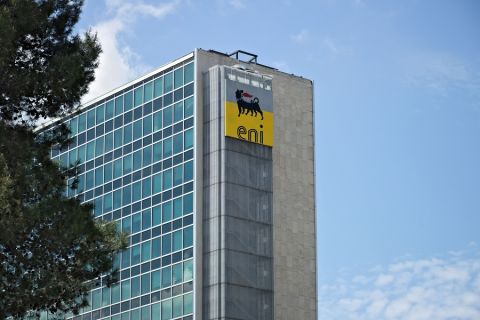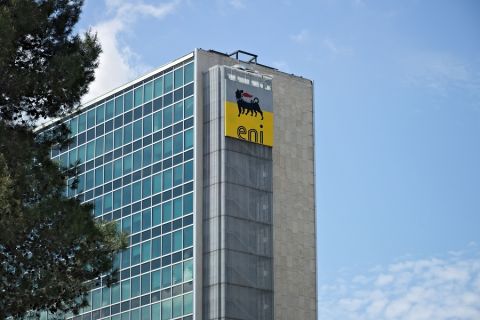Howard Energy Partners does not shy away from competition, not with the high-powered talent hand-picked by
Chairman and Chief Executive Mike Howard that fills the ranks of the San Antonio-based firm.
But with midstream start-ups sprouting like frac stages in the Eagle Ford, how does a growing company stand out from the crowd?
For starters, doubling a key investor’s money in only 26 months would seem to be a promising attention getter. Another would be a company starting with $90 million in investment in 2011 that saw its estimated value skyrocket to north of $800 million by the end of 2013. But Mike Howard gives the matter much deeper thought.
“When we started up in June of 2011, we were one of two-dozen companies that were starting up in the midstream
space and had some kind of private equity backing,” he tells Midstream Business. To set Howard Energy Partners (HEP) apart, he and company President Brad Bynum laid out two major principles:
• The company would steer clear of traditional private equity arrangements
• The company would gear itself for long-term sustainability.
OK, so how does a company depart from conventional financing and adopt a long-term, big-picture strategy and double an investor’s money in less than three years?
By deciding on a direction and then taking it.
There at the start
Shunning standard arrangements, like backing from private equity companies, means negotiating different terms.
“Our equity (at the company’s launch) was coming from two publicly traded sources: Crosstex Energy and Quanta Services,” Howard says. “For very good reasons back then, we diversified our money to look different and also to tell the market that we’re here to stay.”
Crosstex Energy and Quanta Services each made an initial investment of $35 million in Howard Energy Partners in June 2011. The following March, HEP bought the bulk of Meritage Midstream Services’ natural gas gathering assets in South Texas. To finance that deal, Crosstex and Quanta each ponied up an additional $52.3 million. GE Energy Financial Services also invested in HEP.
Quanta ended its investment in HEP in 2013 and sold its entire equity ownership interest in the company for $221 million, equal to a pre-tax gain of about 32 cents per diluted share. Crosstex, however, passed on the deal.
“We’ve invested about $100 million in Howard,” says Bill Davis, executive vice president and chief operating officer
of Crosstex. “The sale that just happened with GE and Quanta would have valued our interest at a multiple of that investment. We had the opportunity to take the deal and sell when they did, and determined that we liked the future at Howard,” he tells Midstream Business.
Alinda Capital Partners acquired a 59% interest in HEP in late 2013 (Quanta and GE’s share) with Crosstex retaining its 31% ownership. The remainder is owned by management and other minority stakeholders.
“In a very short time, HEP has built an impressive base of midstream assets supporting energy producers in South Texas,” said Chris Beale, Alinda’s managing partner at the time. “We are excited by the prospects for growth and look forward to working with our partners to support the ongoing development of critical energy infrastructure in the Eagle Ford region.”
Future IPO for HEP?
Mike Howard insists that neither he nor his management team ever had the goal of taking the company public. But he is a pragmatic businessman.
“We are getting to such a size and such a diversity that going public is probably going to be the next step because that gives us a greater access to capital,” he says. “Crosstex and Alinda are our two current equity providers. There will be a day where they would like to see us take the next step and to take the next step probably is going to have us access the public capital markets. If it becomes a natural progression, then that is what we will do.”
But don’t call your broker just yet.
“I think they’ve got a lot of growth projects that they want to capture before they try to monetize them in either a public or other type transaction,” says Davis. “There’ll be a lot of value creation over the next year or two as those projects are executed. But that’s one potential option that’s available to them.”
“Are there trends, formative deals that could happen between now and then that takes you public immediately?” Howard asks. “Sure. We’re not working on any of those, necessarily, but if we’re just going on our natural progression
of organic growth that we’re doing, we would probably need to go public sometime between now and 2016.”
Sustaining the growth
In the meantime, Howard and his team have plenty to keep them occupied.
“We’ve got a couple of other projects that we’re working on quite far from our home territory of South Texas,” says
Mark Helmke, who joined HEP in May 2013 as senior vice president for terminals and transportation. “But the focus
of the business is the same, which is creating diversity and a cash flow stream here at Howard, and serving a variety of
different business interests, including refining, marketing, trading, blending and end users.”
Among HEP’s new projects:
• Reveille Processing Plant: Construction is complete on the 200 million cubic feet per day cryogenic processing facility in Webb County, Texas, for Eagle Ford output.
• Brownsville Liquids Terminal: When completed in mid-2014, the terminal’s 21 tanks will provide 225,000 barrels (bbl.) of bulk liquids storage to HEP’s service line.
• Live Oak Stabilizer: Customer agreements already cover 70% of capacity for the 10,000 bbl. per day liquids stabilizer near Three Rivers, Texas, scheduled for completion in mid-2014.
And there’s more to come in a sizzling business environment.
“It is very difficult to differentiate yourself from your competitors since it is such a perfect market right now, there’s so much money chasing projects, which is very good for the industry,” says Howard. “That means that when unconventional oil and gas is found in certain basins, that there is money in the industry looking to connect that oil and gas to a market. That’s a good thing for the industry, a good thing for the sustainability of shale plays in the U.S.”
The company they keep
“When we started the company—and we still talk about it today—we had a list of guiding principles,” says Howard. “We felt that if we kept that list of guiding principles, that we would have a group of people around us that we wanted to be around, a group of people that wanted to be around the senior management team. We have a very clear vision about there being a feeling of fulfillment that would lead to long-term employability.”
They included:
• San Antonio rose: “We liked the culture of San Antonio, and we liked the energy businesses that are being built around San Antonio. The quality of living here is higher than other places you could live in the energy business.”
• Home team: “We hand-pick our senior management team, and really, even below that, we’ve hand-picked the 74 people we’ve hired. We haven’t gone out on big employee searches.”
• Job satisfaction: “We want to do what we like doing.”
Enjoying the support of equity partners has allowed the senior management team to stick to their principles as they develop the business.
“We’ve been able to keep our strategic direction the same,” Howard says. “No matter who our partners have been, they’ve bought into our vision. We’ve been able to keep the steering wheel and keep the company going in the direction that we want it to go. And that’s been very important.”
Davis at Crosstex shares the confidence in Howard Energy Partners.
“We just viewed the Eagle Ford as an exciting area to be in,” he says of the original investment decision in 2011. “We knew Mike knew the area well. We had a lot of faith in his ability to create value and so we went forward.”
Forward seems to be Howard’s favorite strategic direction.
“As you see the market changing,” he says, “gas prices are down or gas prices are high or oil prices are high or natural
gas liquids prices are low—whatever is going on, the company has been on the same path since 2011, and we see it continuing on that path.”
Joseph Markman can be reached at jmarkman@hartenergy.com or 713-260-5208.
Recommended Reading
Keeping it Simple: Antero Stays on Profitable Course in 1Q
2024-04-26 - Bucking trend, Antero Resources posted a slight increase in natural gas production as other companies curtailed production.
NOV Announces $1B Repurchase Program, Ups Dividend
2024-04-26 - NOV expects to increase its quarterly cash dividend on its common stock by 50% to $0.075 per share from $0.05 per share.
Initiative Equity Partners Acquires Equity in Renewable Firm ArtIn Energy
2024-04-26 - Initiative Equity Partners is taking steps to accelerate deployment of renewable energy globally, including in North America.
Repsol to Drop Marcellus Rig in June
2024-04-26 - Spain’s Repsol plans to drop its Marcellus Shale rig in June and reduce capex in the play due to the current U.S. gas price environment, CEO Josu Jon Imaz told analysts during a quarterly webcast.
Ithaca Deal ‘Ticks All the Boxes,’ Eni’s CFO Says
2024-04-26 - Eni’s deal to acquire Ithaca Energy marks a “strategic move to significantly strengthen its presence” on the U.K. Continental Shelf and “ticks all of the boxes” for the Italian energy company.

